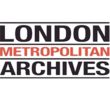Caring for Personal Archive Collections
It is amazing how much material we gather relating to our lives and experiences. Personal archives may have photographs, letters, diaries, minutes and reports from meetings, posters from events and sound and film footage. Here are some starting points to help you care for and organise your material.
- A decision to donate personal papers should ideally be made by the owner in consultation with their family/nearest and dearest beforehand.
- You can seek advice from an archive to assess the historical value of the material and the appropriate repository. A repository should always provide a form/agreement for signature.
- Take care with any selecting process. For example, do not select just ‘interesting’ letters. What is interesting to one person may not be to another and vice-versa. Selection letter-by-letter can be dangerous and skew the record. It is better to keep a meaningful file of letters in its original state. Organise letters by sender or keep the original order if already filed in an ordered way. Keep copies of outgoing letters together or with the incoming letters. Emails are replacing letters and should be considered and kept in digital format but can be weeded down if minor, where possible, into folders.
- Having said take care with selecting there are some things which may not be wanted. You do not need to retain duplicates and generally items such as bank statements and invoices are not required.
- Photographs need to be given a context. If you know location, date, the names of people and the event that should be recorded. If you must write on the back of photographs use soft pencil but it is better to keep photographs with the information on a separate sheet. Photographs should always be handled using gloves to prevent surface damage caused by fingers – they can be sleeved in inert archival polyester sleeves to prevent damage.
- If the personal collection includes records generated by the individual(s) through active roles they had in organisations/businesses – for example whether it’s a Club, Campaign Committee or working in a shop – then all items relating to each should, where possible, be separated out into their own sections within the personal collection. You might also consider the merit of returning them to the main archive of that organisation if appropriate. Details of deposited archives across the UK can be found on The National Archives (TNA) Discovery website (http://discovery.nationalarchives.gov.uk/advanced-search select ‘record creators’ tab)
- In general, within each series of records, try and get material into a chronological sequence, from the earliest to the most recent.
- Archives have collections policies, which you might find useful. London Metropolitan Archives’ policy can be found here: https://www.cityoflondon.gov.uk/things-to-do/london-metropolitan-archives/about/Pages/guide-to-records-accepted-by-lma.aspx
Further reading and online training films
1) Visit the Community Archives and Heritage Group website for guidance http://www.communityarchives.org.uk/content/resources/resources
2) The Heritage Lottery Funded project York: Gateway to History published community archive guidance in 2016. https://www.exploreyork.org.uk/archives/keeping-your-archives/
There is a series of 3 training films which are also on YouTube. The films are also available with British Sign Language Interpretation
Cataloguing Your Collection - https://www.youtube.com/watch?v=1ODO6I8yvhY
BSL version - https://www.youtube.com/watch?v=2FwrjxvOd0I
Storing Your Archives - https://www.youtube.com/watch?v=myUAeF0icnw
BSL version - https://www.youtube.com/watch?v=bhKNJ9jwV-w
Delving Into Digital - https://www.youtube.com/watch?v=RrGXiFiua-A
BSL version – https://www.youtube.com/watch?v=0Nvsw2aNK3o
3) If you manage a business and want more advice on business archives and how to make the most of them visit -http://www.managingbusinessarchives.co.uk/



Find us on:



